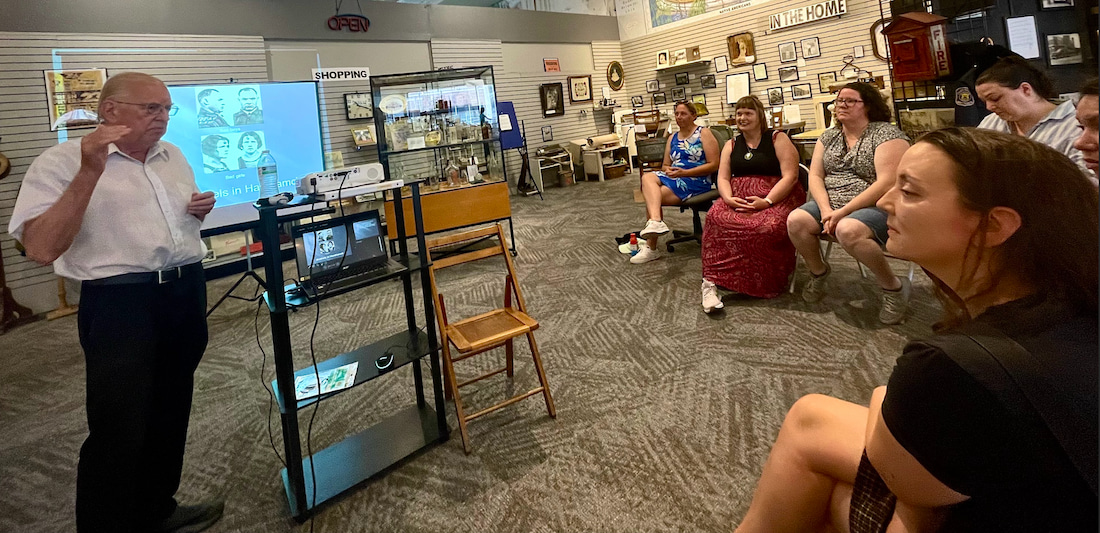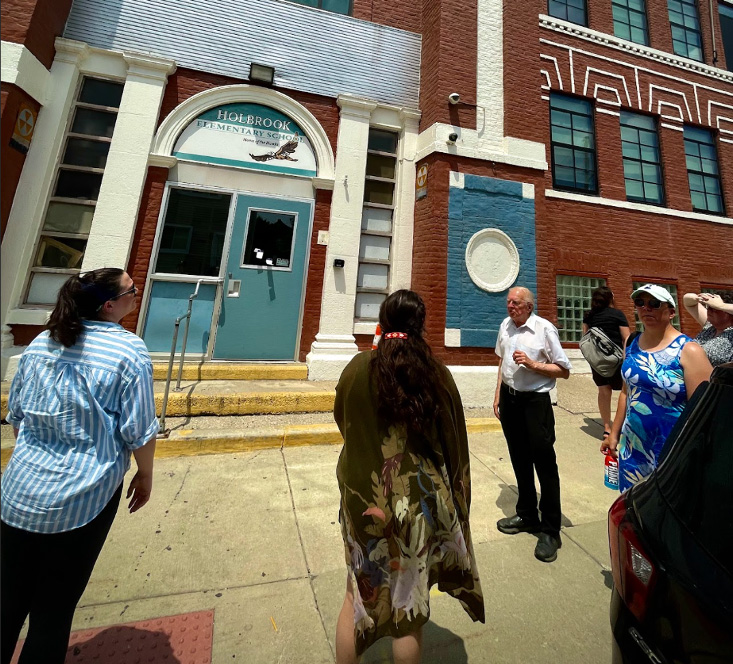
Julie Julison: Sex workers and the 19th-century city
It isn’t surprising that in addition to research on entomophagy (eating insects) in the archaeological record, Julie Julison now finds herself exploring another major topic in the discipline. Julie is a third-year Ph.D. student in Wayne State's anthropology department immersing herself in researching sex workers in Detroit and Hamtramck from 1830-1930 by examining the material culture from archaeological sites.
The sites of exploration are two assemblages suggested as brothels, one being a place where these women were incarcerated for these activities. The research is being conducted by the Femme Beings Project, founded by Julie, Sarah Pounders and Ana Saenz – all graduate students with a goal to bring back to life the personal stories of women who were continually marginalized, objectified and homogenized into one all-encompassing personification encapsulated by the word prostitute.
There's ample research on men of this era in Detroit and their stories are well-represented, including the birth of the auto industry and other enterprising businesses that contributed to the growth of this powerful city. One major flaw is that the contribution of women is missing from this narrative.

In the summer of 2024, the Femme Beings Project organized a few field trips to help understand the intimate details and the landscape of brothels and the women who worked in them. Greg Kowalski, curator at The Hamtramck Historical Museum provided the Femme Beings Project members, WSU anthropology staff, faculty and guests from SHPO, City of Detroit and DIA, an extensive presentation along with a guided tour through many of Hamtramck’s former locations of houses of ill-repute.
 As an archaeologist, focusing much of her time in the pre-colonial period out west, Julie felt it was essential to broaden and expand her research into historical archaeology, which will be advantageous in the future job market. Throughout her studies, one constant is investigating parts of history that are dismissed or ignored and shedding light on them, which increases our overall understanding of past people and their behaviors.
As an archaeologist, focusing much of her time in the pre-colonial period out west, Julie felt it was essential to broaden and expand her research into historical archaeology, which will be advantageous in the future job market. Throughout her studies, one constant is investigating parts of history that are dismissed or ignored and shedding light on them, which increases our overall understanding of past people and their behaviors.
Julie, Sarah Pounders and Ana Saez will be presenting the Femme Beings Project’s findings at the annual meeting of the Society of Historical Archaeologists in New Orleans in Jan. 2025.